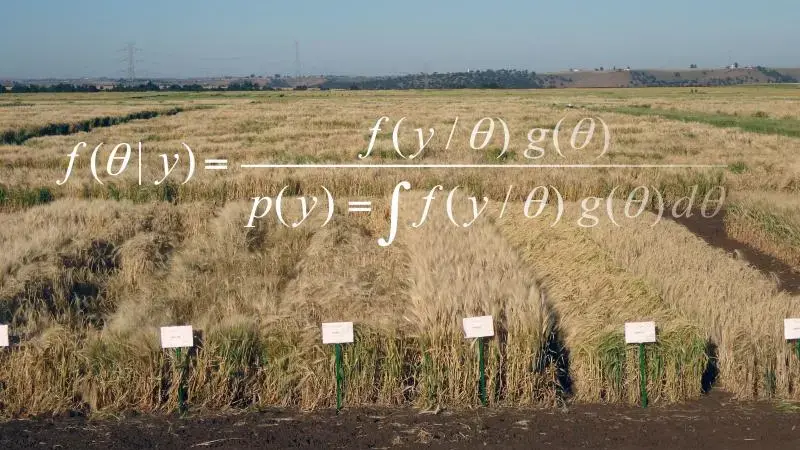'Big Data' Spells Big News for Crop Breeding Programs

Imagine designing new drugs without utilizing the results from previous clinical trials. How efficient would be the process of finding a cure? This is somewhat close to what's happening in crop breeding programs today.
Developing improved crop varieties is a long journey for breeders - on an average lasting 10 years or even more. Regular evaluation of varieties are carried out in a series of designed field trials over multiple locations and years, continually rejecting some, retaining some and adding new varieties in search of the desired traits, generating volumes of data in the process. However, this wealth of data generated from prior routine trials lies unutilized. The normal breeding practice today is to use current trials, starting evaluations of genotypic materials anew.
Crop breeders could now have at hand an elegant solution that allows infusing empirical evidence into the iterative process of genetic selection - a more efficient approach to breeding improved crop varieties.
"We have applied a common mathematical analytical tool in a brand new context of crop breeding", explains Murari Singh, biometrics specialist at ICARDA, who has been working with crop researchers to develop a systematic framework that can harvest and harness existing data to refine the process of crop breeding.
The Bayesian framework uses probability distribution of various parameters to enrich the current information in identifying accessions' potential and predicting the genetic gain when certain genotypes are crossed to make progress toward desired traits - for example, high yielding wheat with drought tolerance. Using empirical evidence to inform the iterative process of selection of good lines and removal of bad lines is lending a firm footing to crop breeding.
"The benefit of adopting Bayesian framework is not in high precision of results but the gain in authenticity of the results. Building on existing results ensures more sound and robust basis for designing current trials", points out Singh.
The statistical framework was constructed using crop yield data on 30 barley genotypes developed at ICARDA as of 2011, and incorporating data from a series of 20 other previous trials. The methodology provides step-by-step procedure ready for application by crop breeding programs.
The adoption of the approach to mine 'big data' in crop breeding will progressively refine the statistical framework, putting crop breeding on a more well-grounded, evidence-based path.
The methodology is published in Crop Science Journal, December 2014, Vol. 55 No. 2 as an open access publication.
Supported by: Government of Italy, CGIAR Research Programs on Dryland Cereals and Dryland Systems
